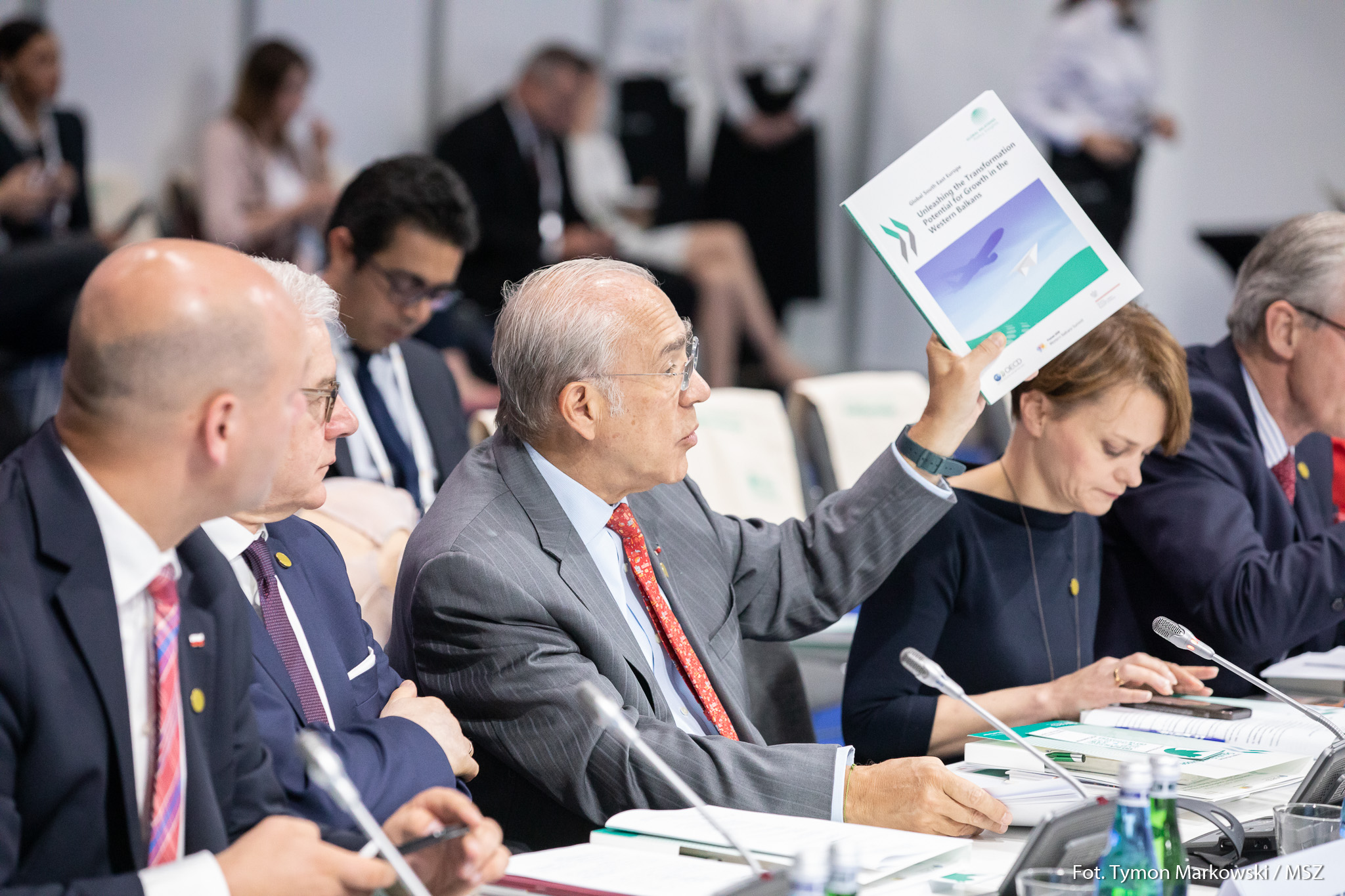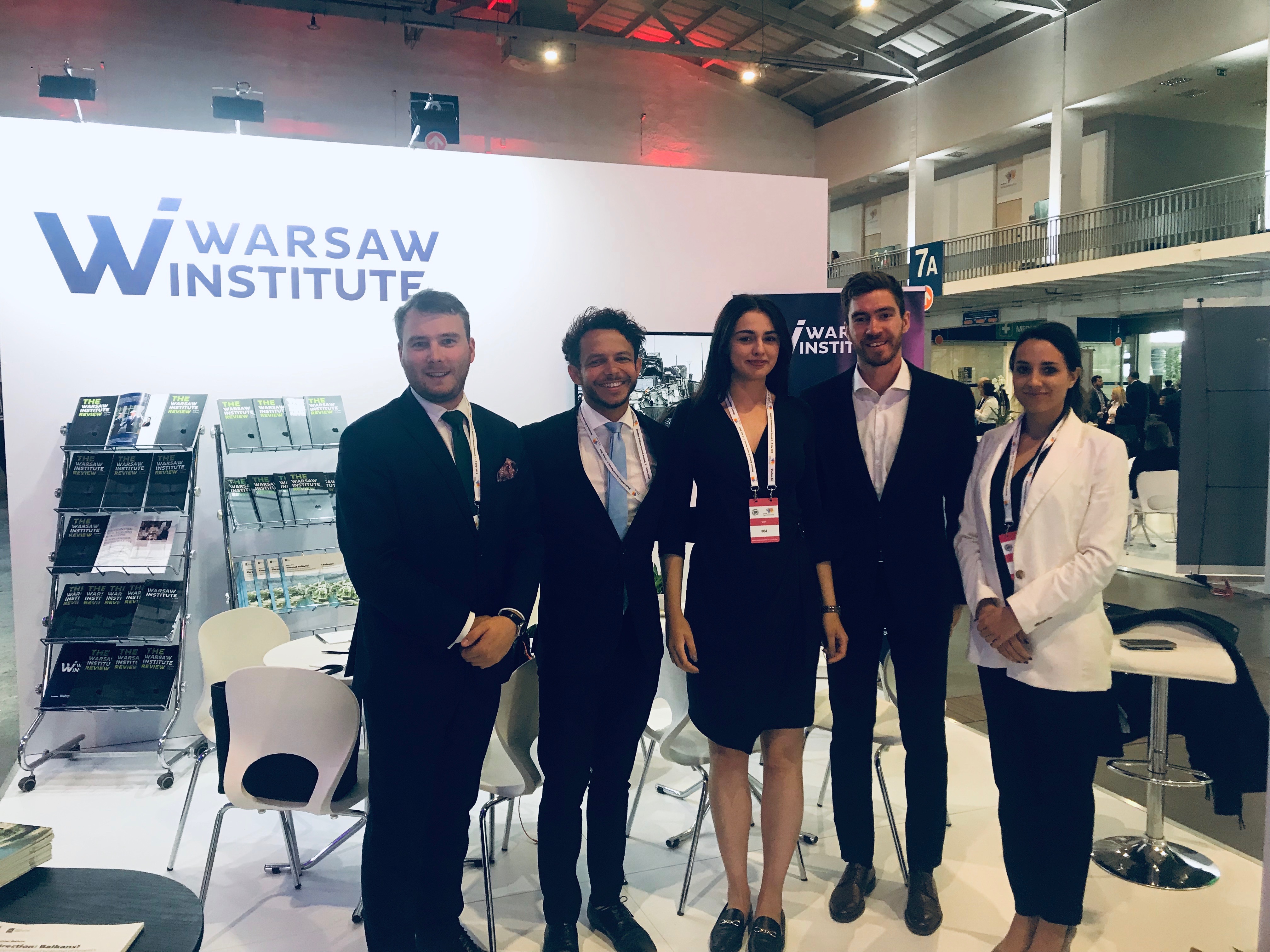NEWS
Date: 5 July 2019
Western Balkans Summit 2019
The Western Balkans summit in Poznan is the culminating point of the Polish Presidency in the Berlin Process. During the meetings of the Berlin Process participating states’ most elite policy-makers, key decisions were made pertaining to the future of the Western Balkan regional integration with the European Union. The meetings at the highest level were supplemented with two complementary events: the business component was presented during the Business Forum, and the civil society dimension was discussed during the Civil Society Forum. Both events were opportunities to present the analytical achievements of the Warsaw Institute and The Warsaw Institute Review quarterly, as well as the promotion of our latest international conference on Infrastructure, energy and geopolitics in the Western Balkans.
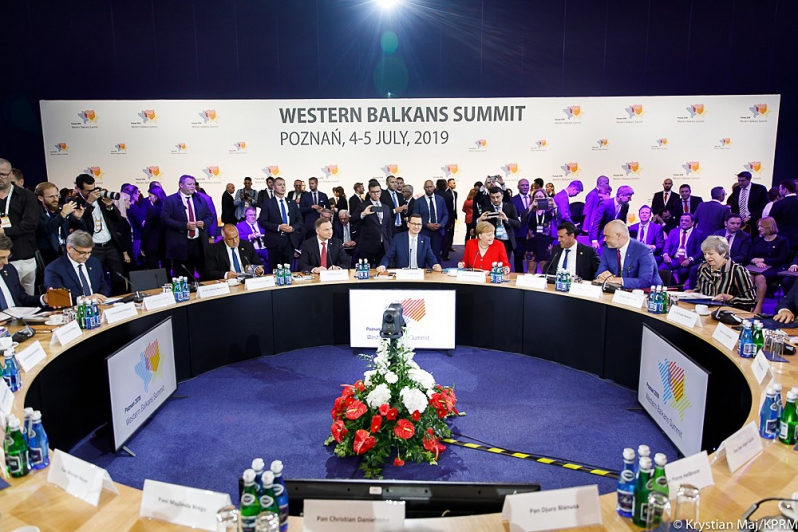
Over the course of twenty thematic panels, a wide array of participants – diplomats, politicians, officials, businessmen and businesswomen, experts, journalists, analysts, and activists alike – examined both technically and conceptually the most pressing predicaments and obstacles the countries of the Western Balkans (Albania, Bosnia and Herzegovina, Montenegro, Kosovo, North Macedonia and Serbia) are faced with on the path to integration with the European Union. These discussions epitomize the priorities of the Polish Presidency, namely: catalysts of unity, economic ties, liveliness of civil society, and security strategies. During the event, the OECD report “Global South East Europe: Global South East Europe: Unleashing the Transformation Potential for Growth”was presented, which thoroughly and comprehensively analyses the economic situations of the Western Balkans region.
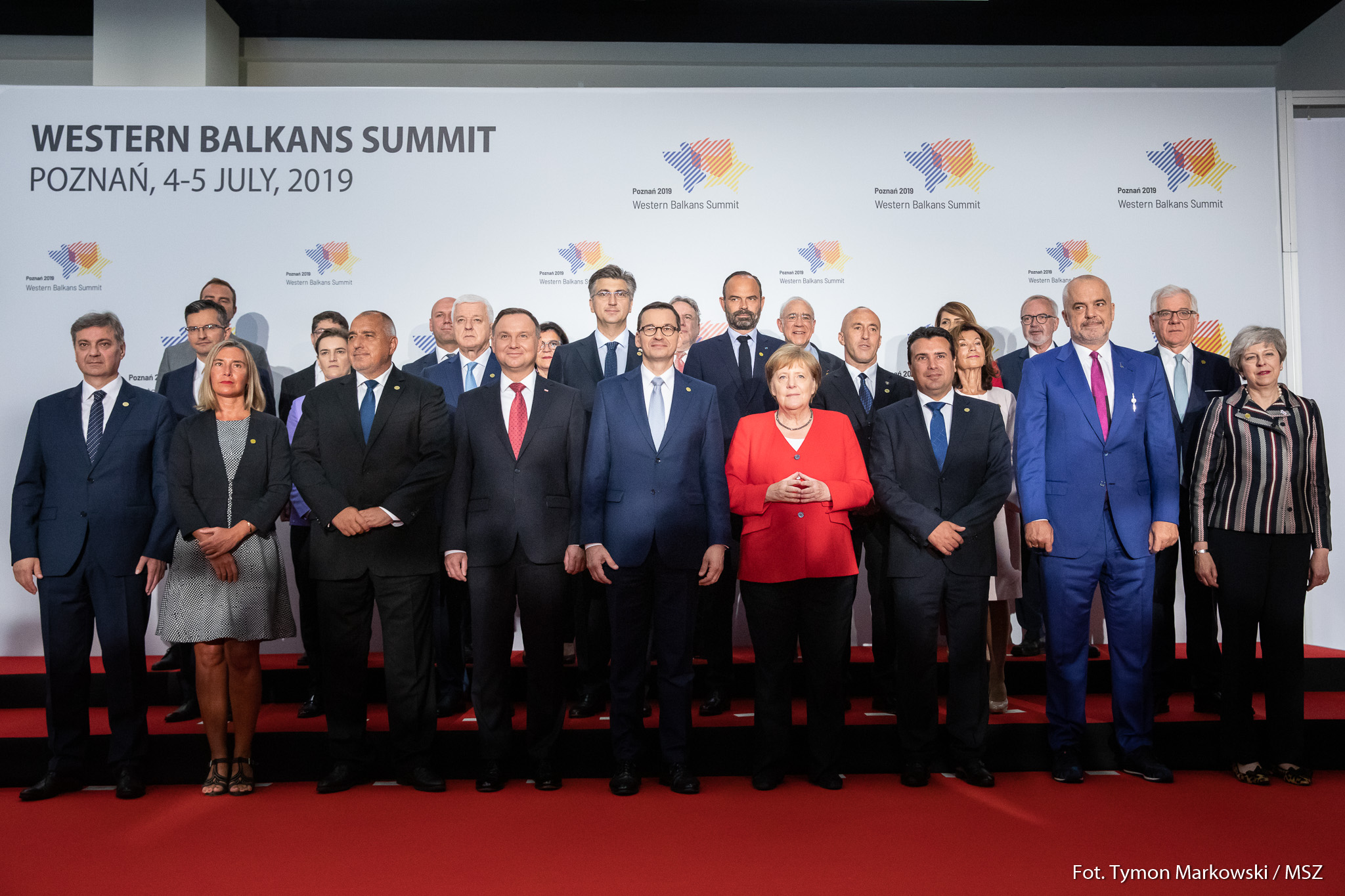
The opening session on July 4, titled “Navigating the Future: How to Prepare for the Revolution in Trade, Services and Industry”, featured most remarkable and insightful speakers: Mr. Jacek Czaputowicz (Minister of Foreign Affairs, Poland, Ms. Jadwiga Emilewicz (Minister of Entrepreneurship and Technology, Poland), Mr. Angel Gurria (Secretary General of OECD), Mr. Johannes Hahn (EU Commissioner for Neighborhood Policy), Ms. Majlinda Bregu (Secretary General, Regional Cooperation Council), and the discourse was moderated by Mr. Marko Cadez (President of the Chamber of Commerce and Industry, Serbia).
Sesję otwierającą obrady w dniu 4 lipca zatytułowana była “Navigating the Future: How to Prepare for the Revolution in Trade, Services and Industry”, a udział w niej wzięli Jacek Czaputowicz (Minister Spraw Zagranicznych, Polska/Minister of Foreign Affairs, Poland), Jadwiga Emilewicz (Minister Przedsiębiorczości i Technologii, Polaska/Minister of Entrepreneurship and Technology, Poland), Angel Gurria (Sekretarz Generalna, OECD/Secretary General, OECD), Johannes Hahn (Komisarz UE ds. Polityki Sąsiedztwa /EU Commissioner for Neighbourhood Policy & Enlargement Negotiations), Majlinda Bregu (Sekretarz Generalna, Rada Współpracy Regionalnej/Secretary General, Regional Cooperation Council), a moderował ją Marko Cadez (President, Chamber of Commerce and Industry, Serbia).
During his speech, Minister Czaputowicz underscored that Europe cannot be considered truly united without the Western Balkans. With this, he also stressed that Poland is more than ready to continue sharing expertise and know-how with the countries of the region, which derives its own experience in the accession process to the European Union. Accordingly, the Minister elaborated that Poland avidly and authentically supports the efforts undertaken by the region’s countries to join the Community. Then, Johannes Hahn remarked in his speech, that in the integration process of the Western Balkans with the EU, amongst the most indispensable dimensions is the modernization of infrastructure, both in terms of people-to-people connections with the Community, though above all, connections between the Balkan six states. This would amplify integrative efforts of each individual country with the EU to have a positive effect subsequently on the others. Following this, he mentioned the active involvement of EU financial institutions in improving communication, and examined competing Chinese or Russian projects that carry risk of investment dependence and corruption. The Commissioner also elaborated on the more social dimension of integration, recalling the regional potential of human capital which ought to be skillfully utilized to accelerate the development of the region; increase the prosperity of societies and reduce the negative effects of labor migration; or the phenomenon referred to as ‘brain drain’. In her speech, Minister Emilewicz stressed the importance of businesses in the integration process. She maintained that strong and healthy economic connections positively influence the stabilization of the political and economic situations and thereby increase the well-being of societies. These are, in essence, some fundaments for peace. The Minister articulated Poland’s readiness to share business and commercial experiences, and encouraged current entrepreneurs to intensify economic trade activity, which in the last decade has grown two – and sometimes even three – times over, between individual Western Balkan countries and the European Union. Building on from this, Angel Gurria discussed the OECD report “Global South East Europe: Global South East Europe: Unleashing the Transformation Potential for Growth”and described trends in the dynamics of growth of European economies over the last decade. The Secretary General pointed out that the value of FDI (Foreign Direct Investment) in the Western Balkans region over the past few years has increased tenfold and the GDP (Gross Domestic Product) more than doubled. He also illustrated the economic situation in Poland and highlighted that economic growth is estimated at twice as high as the average growth of OECD economies. Thereafter, Majlinda Bregu, during her remarks, raised the issues relevant to the “Balkan Barometer”project. She also drew attention to the problem of corruption, transparency, and building citizens’ confidence in government institutions. The Secretary General distinguished digitization as a vital means to accelerate economic growth, and also drew attention to the need to build partnership between the private sector and universities, the potential of which has not been adequately used so far.
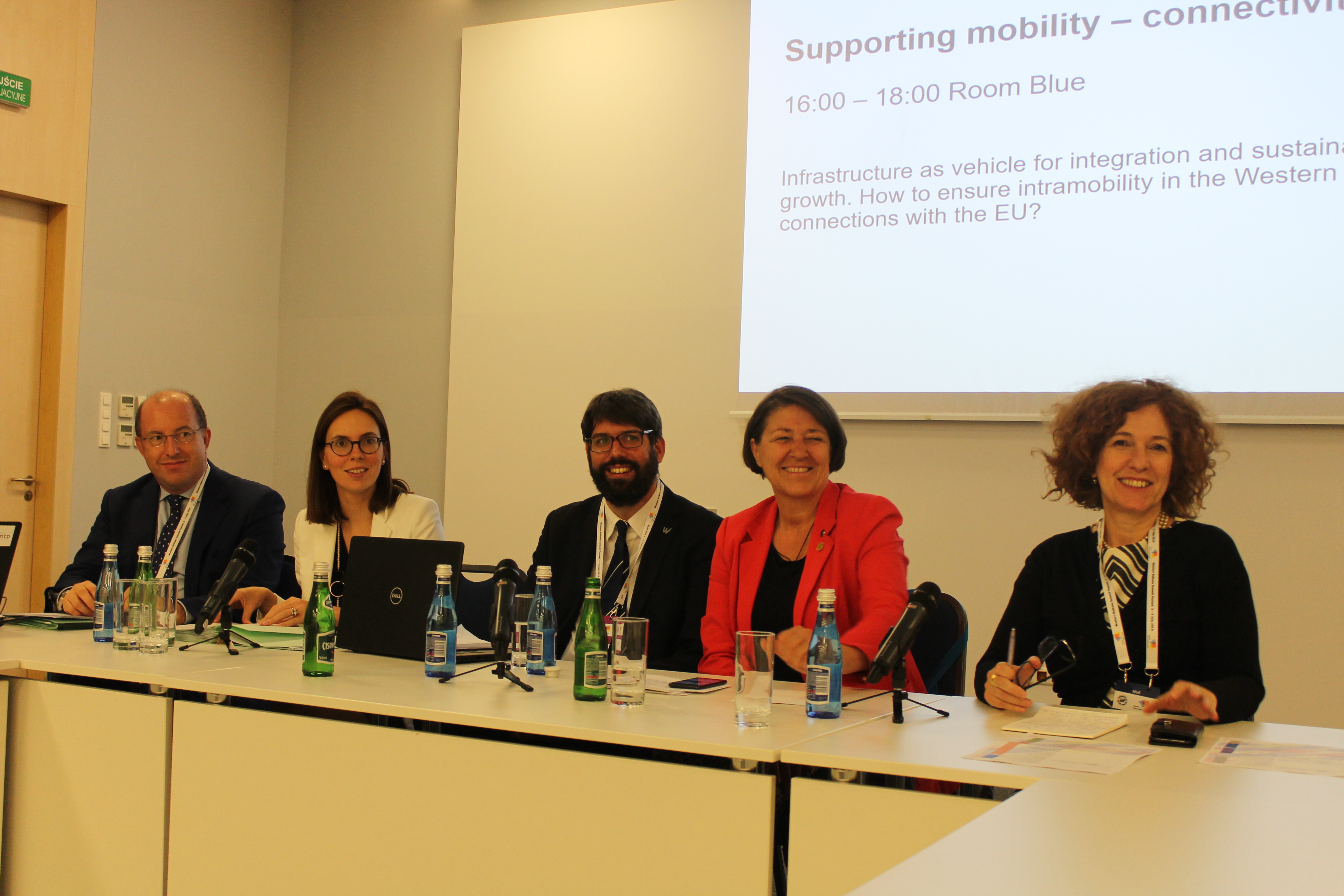
One of the thematic panels during the Business Forum: ‘Supporting Mobility: The Connectivity Agenda’, was moderated by an expert of Warsaw Institute, Mr. Jakub Lachert. The discussion concerned the flagship postulate of the Berlin Process, i.e. the multi-dimensional improvement of communication. Participation was taken by: Alain Baron (Director, Transport Community, Serbia), Violeta Bulc (European Commissioner for Transport), Roman Vlahutin (Ambassador at Large for Connectivity, European External Action Service) and Amelie de Montchalin (Secretary of State for European Affairs) , France). These extraordinary panelists contemplated ways in furthering cooperation between the Western Balkans and the EU institutions in the field of improving infrastructure, and particularly in transport infrastructure. Enlargement of trans-European transport corridors will serve as a instrument for regional integration. Furthermore and in accompaniment to this, these additional and well-planed routes would enable the strengthening of commercial ties between the economies of the Western Balkans and the EU. During the panel, it was emphasized that transport is not only the driving force of the economy, but is still one of the key factors taken into account by foreign investors. It was further explained how developed infrastructure and a developed transport sector is an indispensable of social mobility, as a factor which improves the quality of life and reduces the unfavorable aspects destabilizing the economic and political situation in the region. An excellent comment made was how connectivity gives one an opportunity to meet another who would not otherwise have been met, and with these, the wide array of human potential of knowledge. Subsequently, one of the most intriguing conclusions of the panel was the statement that a faster accession of the Western Balkan states to the European community will enable the stabilization of the geopolitical situation and will increase the pace of the region’s development, including infrastructure.
In all, the Western Balkans Summit in Poznan was a phenomenal opportunity to present the Warsaw Institute’s analytical achievements with The Warsaw Institute Review quarterly, as well as the witnessing some fruition and following-on outcomes of our latest international conference on Infrastructure, Energy and Geopolitics in the Western Balkans [more on the conference here] and the conference report [download here] . Having joined the selected promoters of the Polish Presidency in the Berlin Process, and through a series of initiatives, we actively participated in the expert discussions on the future of Western Balkan integration with the European Union.


